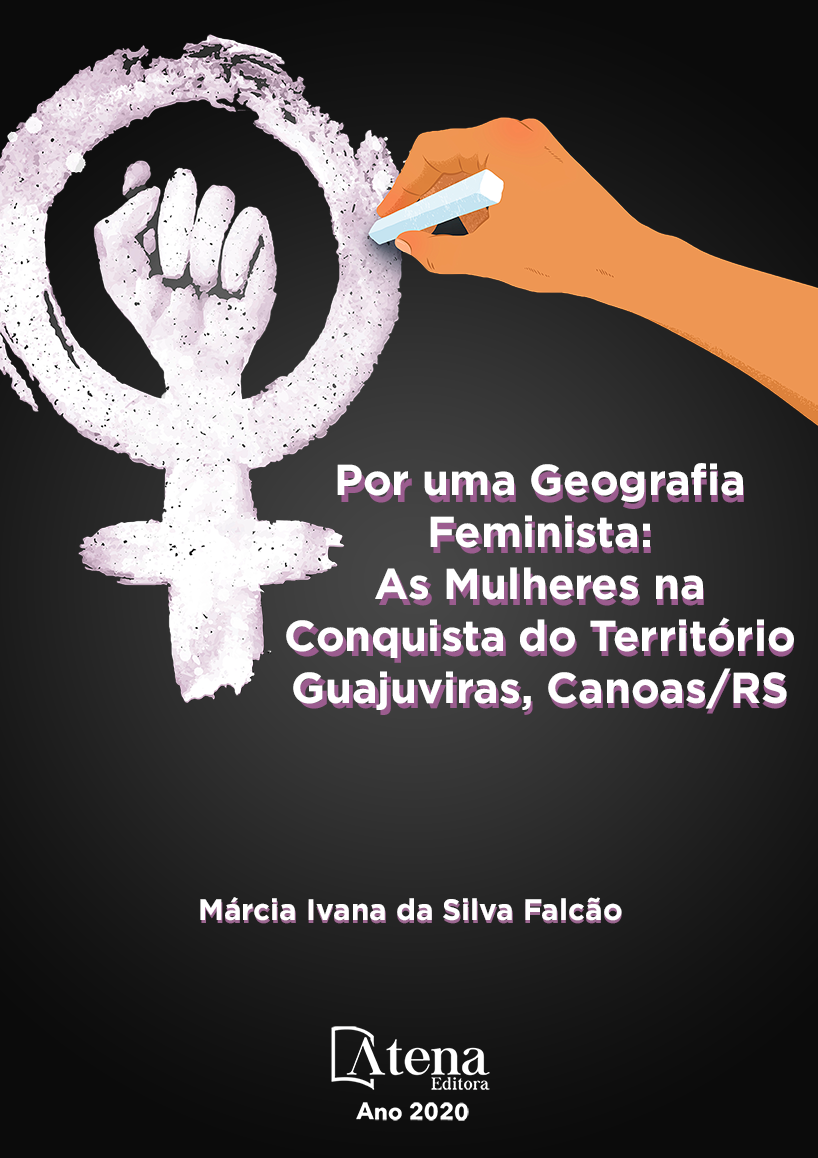
POR UMA GEOGRAFIA FEMINISTA: AS MULHERES NA CONQUISTA DO TERRITÓRIO GUAJUVIRAS, CANOAS/RS
O presente texto de dissertação é resultado e síntese do esforço de identificar e analisar as práticas sócio-espaciais das mulheres e o papel destas na conquista e constituição do território, através da pesquisa do processo de ocupação urbana do Guajuviras, em Canoas/RS. A partir de metodologias participativas de pesquisa, mulheres que vivenciaram a ocupação e permaneceram morando no Guajuviras narraram suas trajetórias e o processo de luta por moradia da ocupação, em 1987, até o reconhecimento da posse, em 1989. Tais narrativas são apresentadas densamente neste texto e são tomadas com caráter de fonte documental histórica que apresenta o espaço-tempo recortados, desde a perspectiva das mulheres que participaram do mesmo. As trajetórias comuns de migração, assim como eventos e fatos marcantes nas narrativas das mulheres, foram refletidos no sentido de identificar os contextos os quais tomam parte, em processos dialéticos que perpassam diferentes escalas de tempo e espaço. Assim, as trajetórias das mulheres e suas famílias em busca de trabalho na cidade metropolitana, nas décadas de 1960, 1970 e 1980, e a luta por moradia, através da ocupação Guajuviras, foram discutidos do ponto de vista do processo de urbanização brasileiro e latino-americano. Por fim, atravessando e iluminando a analise geográfica com teorias feministas, sobretudo com a categoria de gênero, o estudo buscou identificar e visibilizar práticas produtoras do espaço e território marcadas pelos papeis sociais diferentemente atribuídos a mulheres e homens, nas esferas privada e pública, demonstrando que ambas são esferas com caráter político. Desse modo, pretende-se demonstrar que as práticas sócio-espaciais são marcadas por relações de gênero e são representadas segundo parâmetros de valoração desigual de acordo com critérios de gênero. Com isso, o estudo almeja participar na construção de uma Geografia Feminista, compromissada em visibilizar as relações sociais de classe, gênero e racialidade na produção do espaço.
POR UMA GEOGRAFIA FEMINISTA: AS MULHERES NA CONQUISTA DO TERRITÓRIO GUAJUVIRAS, CANOAS/RS
-
DOI: 00
-
Palavras-chave: Território Guajuviras; Práticas Sócio-espaciais; Mulheres; Gênero; Geografia Feminista
-
Keywords: Guajuviras Territory; Socio-spatial practices; Women; Gender: Feminist Geography
-
Abstract:
The present dissertation is the result and synthesis of the effort to identify and analyze the socio-spatial practices of women, and their role in the conquest and construction of the territory, through the study of the process of urban occupation of Guajuviras, in Canoas/RS. Based on Participatory Research methodologies, women who witnessed the occupation and lived in Guajuviras narrated their trajectories and the struggles in the process of occupancy in 1987, until the recognition of the land possession in 1989. These narratives are fully presented in this text, being taken as historical documentary sources that present a space-time cut, from the perspective of women who participated in it. The common migration trajectories, as well as important events and facts in the narratives of that women, were reflected in the effort of identifying the contexts which they belong, in a dialectical process that span different scales of time and space. Thus, the trajectories of that women and their families in search of work in the metropolitan city in the 1960’s, 1970’s and 1980’s and the struggle for housing in the Guajuviras occupation were discussed from the point of view of the Brazilian and Latin American urbanization processes. Finally, by traversing and illuminating the geographic analysis with feminist theories – especially with the category of gender – the study sought to identify and to make visible the practices producing space and territory marked by social roles, differently attributed to women and men in the private and public spheres – demonstrating that both are spheres with a political character. Thus, it is intended to demonstrate that socio-spatial practices are marked by gender relations and are represented according to unequal parameters of valuation according to gender criteria. With this, the study aims to participate in the construction of a Feminist Geography, committed to making visible the social relations of class, gender and race in the production of space.
-
Número de páginas: 152
- Márcia Ivana da Silva Falcão


